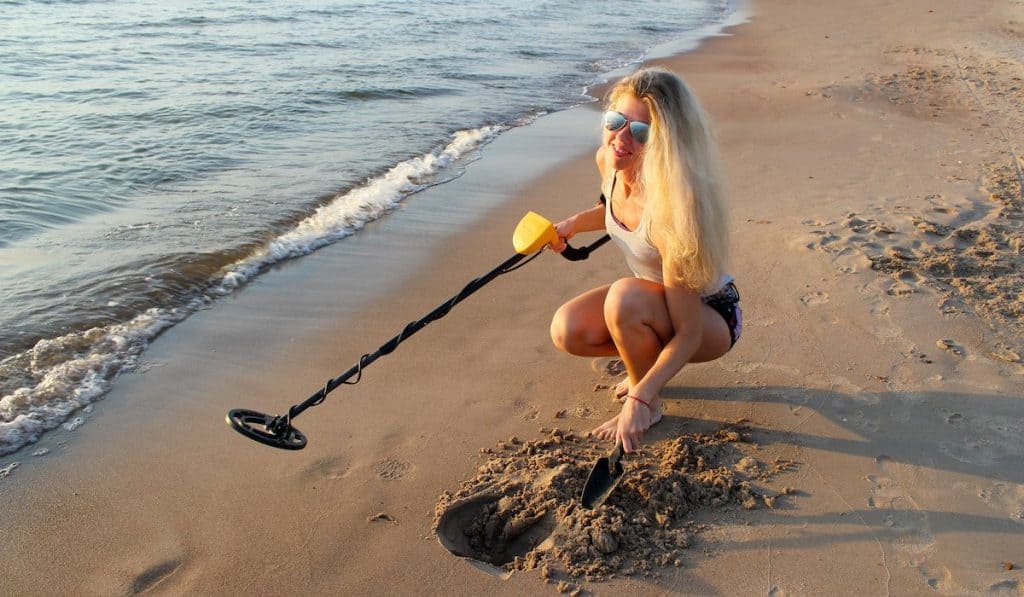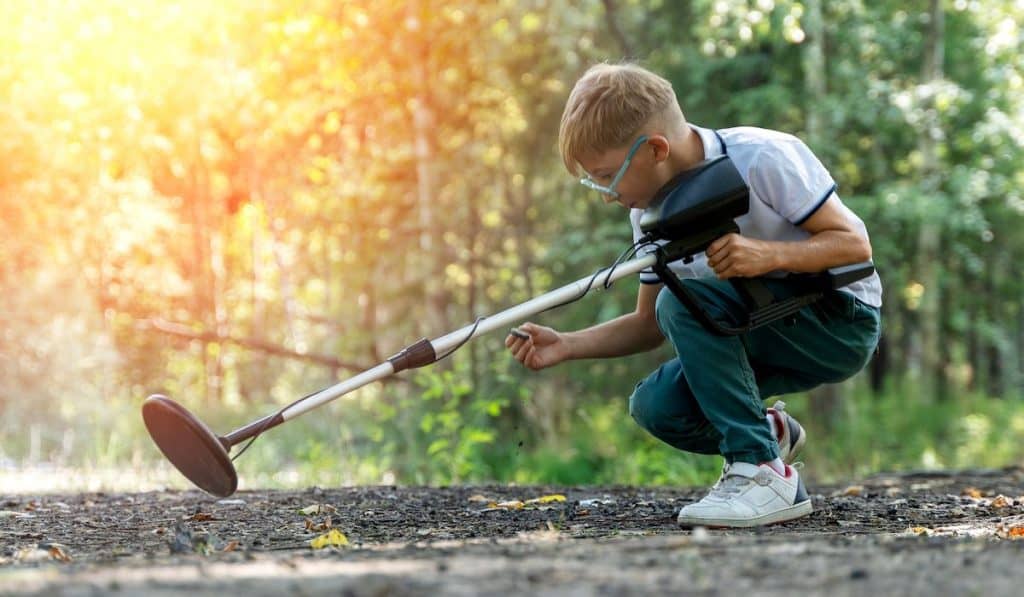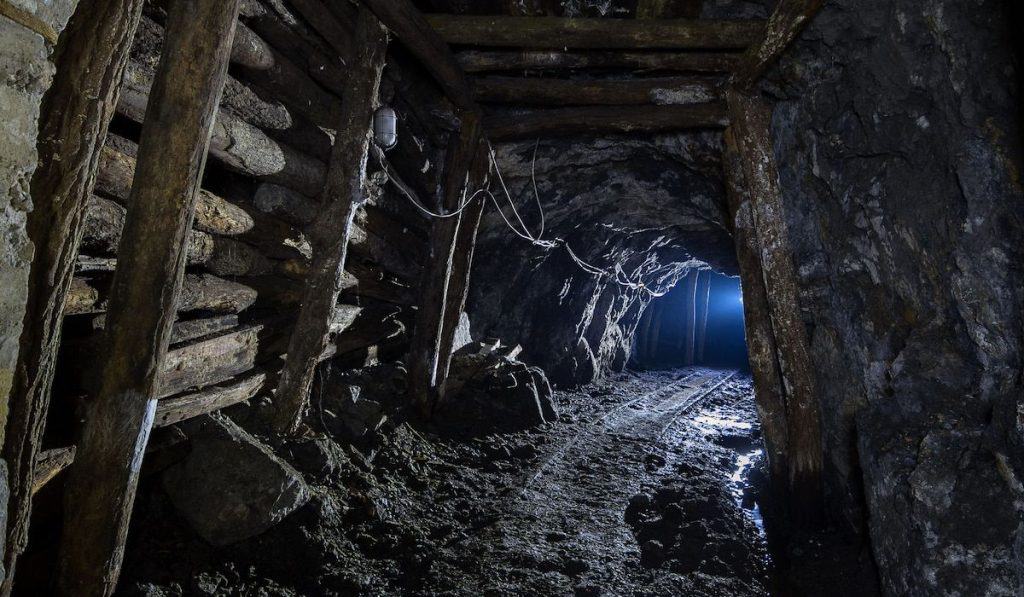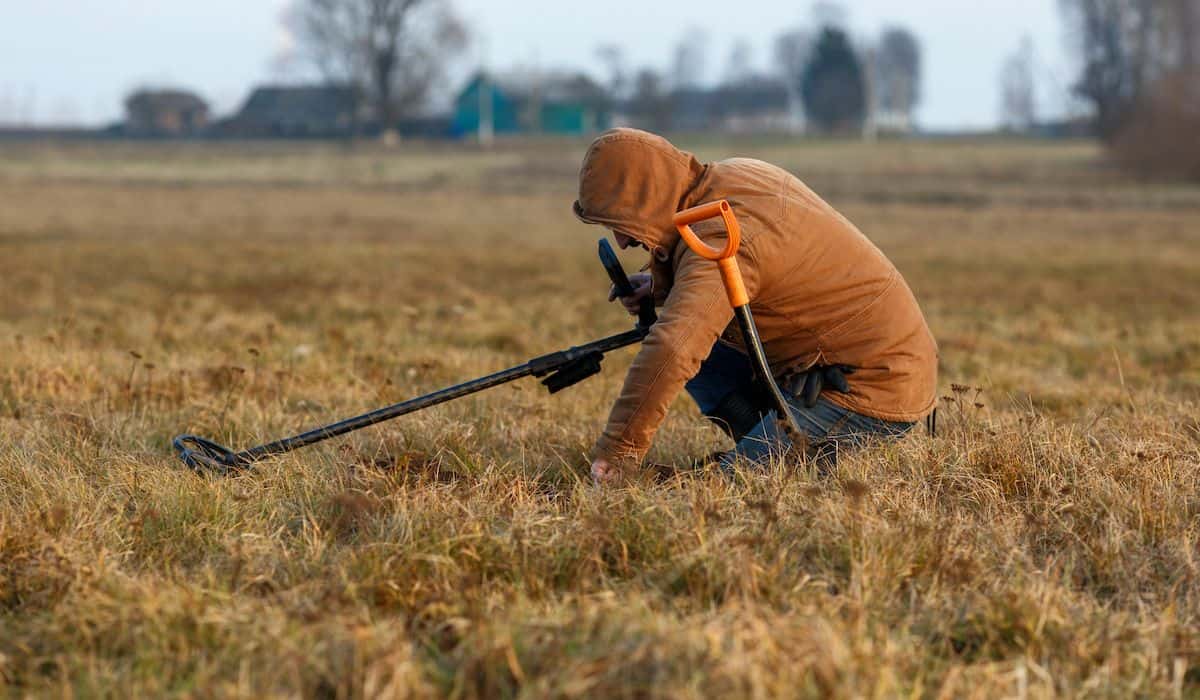If you’re feeling anxious about asking for permission to go metal detecting, you’re not alone.
Safe places to metal detect without permission are the beach, your home, near rivers, and streams not on private land. You can also detect on friends and families properties. Abandoned towns and so-called Ghost towns are also good places to metal detect.
To help you out, here are some places where you don’t need any permission to go metal detecting.
Why you need permission to metal detect
But first, let’s put the permission issue into perspective. If you’re a first-timer in the metal detecting hobby, you may be wondering what all the fuss is about permission.
Well, for starters, it’s illegal to metal detect in some places without permission. If you get caught, you could be prosecuted to the full extent of the law.
Second, metal detecting in private property without permission is considered trespassing and is also illegal.
You may be fined or arrested if you’re caught or if someone calls the cops on you.
Third, some places are protected areas, and you’re not permitted to dig or take anything out if you find it.
Because of the legal risks, it’s always a good idea to seek permission.
Now that you know why permission is so important, let’s talk about the places you can legally detect without the need for consent.
Learn how and where to get permission here in our latest article
Public beaches
Anyone can go to a public beach and do almost anything they want to as long as it’s legal. The same applies to metal detecting.

It’s a good idea to go metal detecting at the beach early morning before there are too many people.
If you have a good lighting source and you’re in a safe area, you can try going later at night after everyone is gone.
However, while most public beaches are not off-limits, waterways encroached into government or protected areas are still off-limits. So you’ll need to check to see the limits in your area.
Also, if you want to dive in and hunt for metals in the water, it’s best to get a waterproof metal detector.
Your own house
You may not always have to go far to hunt for metals. Your backyard can be a treasure trove.
So get your machine out and start swooshing it around. Especially if you live on a big farm or old land, there are lots of treasures you can uncover underground.
Remember to practice the same care as you would on someone else’s property. You don’t want to damage your land.
Plus, metal detecting in your backyard is a great way to practice how to use your machine. You can also get the chance to practice in wet and dry soil.
Near lakes
Most of the places where you’d typically go fishing even without a permit are also great for metal detecting. Most of the areas surrounding lakes and rivers are usually suitable bases for historical finds.
You’d need to check if the area is not archeologically protected. If you’re up for it, buy some gear and take your detecting underwater.
You’ll find lots of great trinkets down there. You might even come across some hidden pirate treasures ( one can only hope).
National forests
Most national forests are open to the public for metal detecting. They usually don’t need any permits.

However, some areas in the forest are generally out of bounds for metal detectorists. It’s best to check with the forestry authorities before you go out.
You can make many great finds in the forest, but it’s usually not allowed to take out any findings older than 50 years.
Abandoned towns
Ghost towns are fair game for metal detectorists. You usually don’t need any permission to hunt for metals in ghost towns.
That said, it’s always wise to find out why the town was deserted in the first place. If it was a health issue, it might not be safe to take anything out of there.
If you find that it’s safe, you can make lots of astonishing discoveries of trinkets from long ago.
Some state and public parks
Some public parks allow metal detectorists even without permission. You’ll have to inquire with the local authorities to determine if your local park is not off-limits.
While parks can sometimes be a high trash area, you may find some valuable treasure if you’re using a good detector.
Sometimes parks can be very highly trafficked by detectorists, so you’ll have to exercise lots of patience.
Plus, you’ll likely have to dig quite deep to make good finds.
Your friends and family’s places
You might need a little bit of permission, but asking your friends and family won’t give you the same anxious feeling as you would asking a stranger.
Going over to your mom’s house or a friend’s backyard gives you lots of privacy, and you might even uncover a few magnificent treasures.
If your friends and family have an old property, that would be an excellent place to start.
Near the curb
In some states, it’s perfectly legal to metal detect on the grass near the curb. You’ll probably find lots of lost jewelry and other great finds.
However, you have to confirm with your local police department first because some states don’t allow it.
As an etiquette, don’t dig the place where the grass looks well-manicured. It would not be fair on the homeowners who are maintaining that patch of grass.
Try only to explore where the grass is overgrown and weedy.
To avoid running into awkward stares and explaining to people, go during working hours when most people are at work or in their homes.
Fields
Some fields are open for exploration. You just have to contact the local county offices to tell you which places are available and which ones are off-limits.
Remember to find out which areas are public so you can steer clear of private property.
Abandoned mines
Most abandoned mines don’t have any restrictions on metal detecting.

Therefore, if you find a safe place to rummage around, you can go for it.
Just remember to be extremely cautious since mines can collapse on themselves. Try to avoid digging deep in abandoned mines.
Always tell someone exactly where you’re going and how long you will be. A safety GPS locator is a good idea as well.
Conclusion
Metal detecting is a fun hobby, but only when you’re on the right side of the law. Try out these places where you don’t need any permission first.
Make sure to verify with the authorities up to where you’re allowed to go. Most importantly, stay safe and avoid wandering into unknown territories alone.




